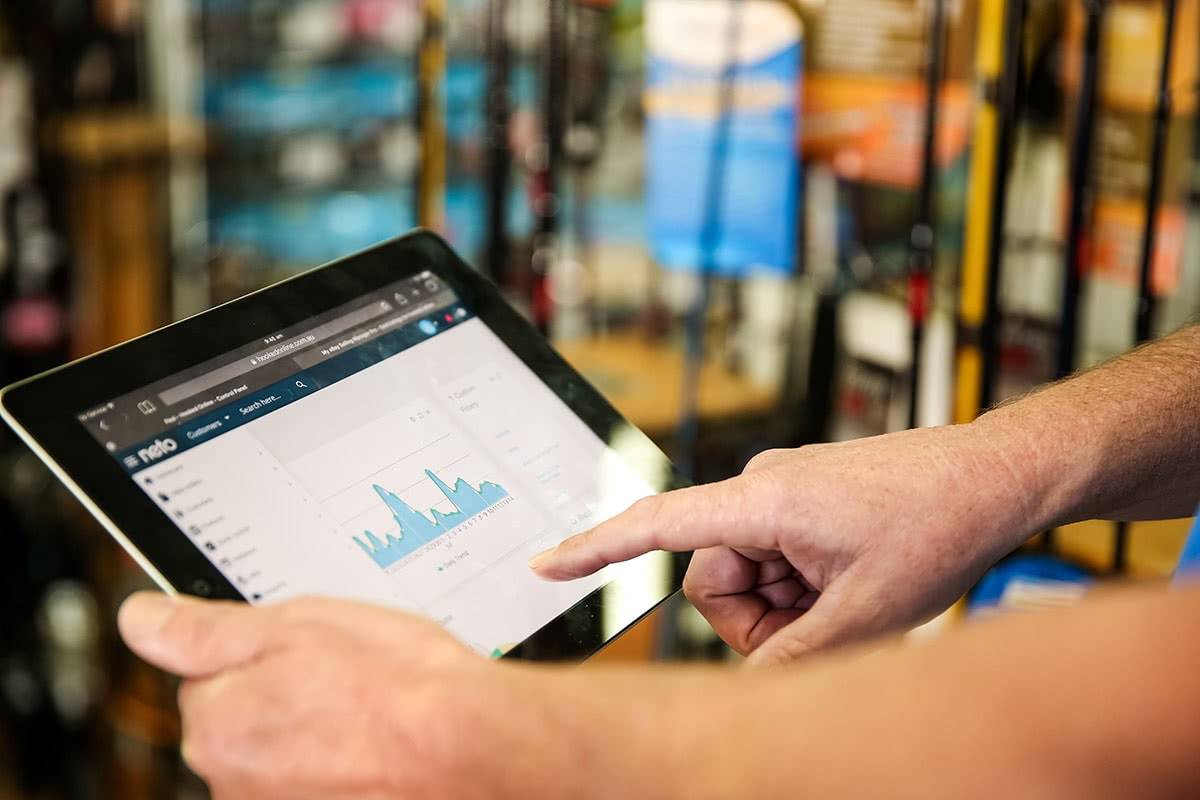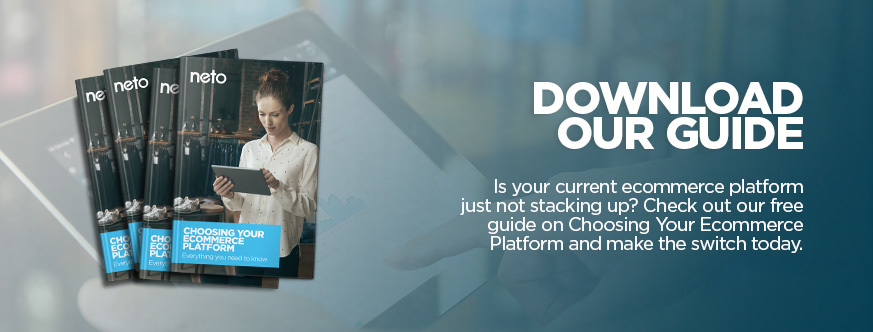
Ecommerce and Retail

Technology is meant to make life easier. It’s meant to help us achieve more with less effort. It’s meant to save us money. It’s meant to simplify our business processes and take over the arduous and tedious jobs we’d rather not do, so we have time to think strategically and connect with our customers.
But does it?
It only takes a quick look at our mobile phone usage habits to see how complicated technology can get. The average person uses at least nine mobile apps every day, and thirty each week. That’s a lot of notifications, a lot of interruptions, a lot of switching between apps, and a lot of copy-and-paste or “open in…” requests. Even if your device switches between apps for you as required, an update to one app can break the process and leave you hanging.

These problems aren’t limited to mobile phones. They also apply to the software and hardware you use to run your business. If you haven’t made sure your business systems are optimised to work together, there’s a good chance your daily work routine is unnecessarily complex.
This is one of the key reasons we’ve built Neto from the ground up, as a single, complete retail management platform to streamline all your essential business processes. Let’s take a look at the benefits of making the switch to an all-in-one unified commerce solution, and an example of how it can make your life easier.
Bricks-and-mortar stores can’t take payment without a point of sale (POS) terminal, and online stores need an ecommerce platform with a shopping cart—otherwise there’s no shop! So most retailers choose a sales platform when they’re first setting up their business. At this stage, their requirements are relatively simple and cost is often the key constraint.
But as their businesses grow, they realise their sales platform can’t manage inventory properly, so they buy an inventory management platform as well. They also need a better way to process orders, so they buy another system for that. And then their customers want a loyalty program, so the retailers find another vendor for that. Online retailers decide to open a showroom, and need to invest in a POS platform; traditional retailers expand online and buy an ecommerce platform. Before they know it, they’re paying for several different platforms that are all essential for their business operations.

And it’s not always clear from the outset how much a retail platform will cost you in the long term. Some are marketed as a complete solution, but combine their features into modules or packages that are charged additionally—one for ecommerce, another for POS, one more for inventory management, yet another for customer loyalty, and so on.
These multiple subscriptions can really add up! So a complete retail management platform that looks after your end-to-end processes, like Neto, can save your business a lot of money and boost your profits.
| Related reading: 4 Reasons to Switch to a Modern POS Platform
This really shouldn’t happen, but it does—often. Sometime’s that’s because the company that’s releasing the update hasn’t given the add-on developers sufficient information to prepare their own updates. Sometimes the add-on developers just haven’t gotten around to it. And sometimes you just didn’t get the message, or your automated update failed, or didn’t realise that you’d need to manually update one or both platforms. (You may have seen something similar on your mobile phone—when the operating system gets updated, every single app maker has to release a new version as well.)
That’s not a problem if you’re using a complete retail management platform. When we improve one part of Neto, e.g. stocktaking, our engineers carefully test that the feature is working, and also that it hasn’t introduced any unexpected problems in other parts of the system, e.g. stock levels as displayed on your product listings.
If you’re using multiple platforms to manage your business, your staff will need to switch systems to find the information they’re looking for. That wastes their time and frustrates customers who are waiting for an answer in store or on the phone. You’re also more likely to end up with out-of-date information that hasn’t synced properly, or errors from manually transferring information between systems.
Neto has allowed Hooked Online to completely streamline their business without spending money on extra staff, and without compromising on customer service.But if you’ve wisely bought a single-platform unified commerce solution, you’ll always be able to see the complete picture—all the information is right at your fingertips. Stock availability will updated in real time for your staff and your online customers, across all stores and locations, including online marketplaces. You’ll be able to build supplier orders based on that information, and easily receipt your supplier deliveries. Your online customers will receive their orders sooner because you can print picking slips and shipping labels directly from their orders.
| Related Reading: 4 Ways Neto Can Shape Up Your Ecommerce Store… and 4 Clients Who Prove It
This benefit is often overlooked, especially by new business owners, but it’s a significant one. If you’ve ever had to chase up vendors to resolve technical or billing issues, you’ll know what I mean.
When you choose a single system from a single vendor to manage all aspects of your business, you’ll have just one port of call for all your support requirements. You won’t have to call your hosting provider, then your platform vendor, and then third party that makes your add-on module.

With a complete retail management platform, you’ll only ever have to update that single platform; you can avoid worrying about conflicts and incompatibility with other systems. And if your platform is cloud-based, like Neto, those updates will happen automatically in the background, so you’ll always have access to the latest and greatest features.
| Related Reading: 6 Warning Signs That Your Business Is Outgrowing Your Ecommerce Platform
When you opened your first store, you bought a POS platform from a vendor that also offered an add-on ecommerce module. Great choice! But after a while, you realised its inventory tracking capabilities were too limited, so you’ve subscribed to an inventory management platform from another vendor. At the end of each day, you click “sync” in the inventory system, and it updates your stock levels by reading orders and returns from your sales platform.
You receive a notification from your sales platform provider that says they’ve released a new version with some great new features, including more detailed information about the status of returns and orders. When prompted, you click “update now”. And at the end of your profitable business day, you click the sync button in your inventory system…and nothing happens. So you call the inventory management vendors, and they tell you they haven’t made any changes, and you should call your retail platform vendor.
Then you call the retail platform vendor, and they advise you to contact the inventory platform support team. This time they investigate a little more carefully, and realise that the update has changed which fields they need to read from your sales platform. “It will take us a few weeks to resolve this issue,” the consultant says. “Sorry for the inconvenience.”
You briefly consider running a sales report every day and manually updating your inventory system, and decide that article you read on Neto’s blog made a lot of sense. The multiple systems are too expensive, too unreliable, and too difficult to manage. You make the wise decision to switch to an all-in-one retail management platform instead, saving you time, money, and headaches.
So, is technology running or ruining your business? Ideally, it should be doing neither:
Technology should be enabling you to run your business more efficiently and profitably.
If you’d like to simplify your business processes and have more time to focus on your growth strategy, start your Neto free trial today or download our guide 'Choosing your Ecommerce Platform.'
